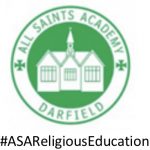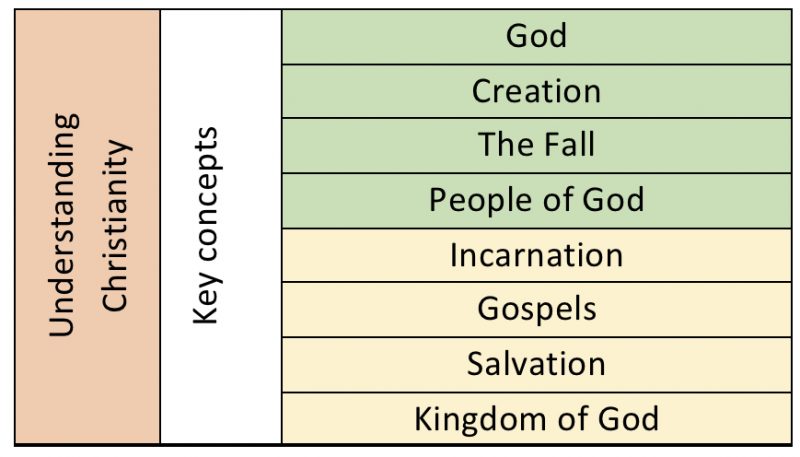 What do we want our children to learn?
What do we want our children to learn?
As a Church of England school, religious education (RE) is a highly valued academic subject that enables an understanding of how religion and beliefs affect our lives. At the heart of our RE curriculum is the teaching of Christianity. However, we also recognise the vital importance of teaching children about a range of other faiths and world views.
Through our RE curriculum, we intend to:
-
Know about and understand Christianity as a diverse global living faith through the exploration of core beliefs using an approach that critically engages with biblical text.
-
Gain knowledge and understanding of a range of religions and worldviews appreciating diversity, continuity and change within the religions and worldviews being studied.
-
Engage with challenging questions of meaning and purpose raised by human existence and experience.
-
Recognise the concept of religion and its continuing influence on Britain’s cultural heritage and in the lives of individuals and societies in different times, cultures and places.
-
Explore their own religious, spiritual and philosophical ways living, believing and thinking.
What does RE teaching and learning look like at ASA?
At All Saints Academy, we follow the Understanding Christianity program of study. Understanding Christianity:
-
develops children’s own thinking and understanding of Christianity.
-
explores the significant theological concepts within Christianity as part of developing pupils wider religious, theological and cultural literacy.
-
supports teachers in developing their own knowledge and understanding of Christianity theology to be able to teach with confidence.
Understanding Christianity is centred around eight key concepts which are at the heart of the Christian belief. These are:
These eight key concepts are explored through biblical texts- placing the texts and concepts within the wider bible story. The first four concepts focus on the Old Testament stories and the final four concepts, the New Testament. Each unit incorporates three elements:
Alongside Understanding Christianity, we also use the Leeds and York Diocesan Syllabus for Religious Education to teach about other faiths and World Views. The two programs of study complement each other as they both follow an enquiry approach through seeking answers big questions.
The curriculum content covered in each year group is around 50% Christianity and 50% other faiths and world views.
We aim to give children the opportunities to learn about religion and in a variety of ways for example: through art, music, drama, story and dance as well as through discussion, quiet reflection and more formal opportunities. We strive to create opportunities for children to experience first-hand experiences through visits and inviting visitors into school to talk about their faith. We believe these opportunities help the children gain a richer and deeper understanding of the theme being taught.
Early Years
Within EYFS, objectives are taken from the Personal, Social and Emotional Development (PSED) and Understanding of the World areas of learning within Development Matters. RE at this stage mainly begins with the children’s own experiences. The children learn about themselves, their relationships with others and the immediate world around them. Children explore questions such as ‘Why is the word God so important to Christians?’, ‘Where do we belong?’, ‘Why are places special?’ and ‘Which stories are special?’. Staff embrace incidental and spontaneous events to develop learning and also plan specific activities for learning. Learning is facilitated in a variety of ways including free play within continuous provision, circle times and story time.
Opportunities for stillness and quiet are provided to develop the children’s capacity for reflection and thinking.
Key Stage 1
Children share their experiences of faith and belonging, learn about the place of prayer in religion, understand the role of the Church and answer questions ‘What do Christians believe God is like?’, ‘Who made the world?’, ‘Why does Christmas matter to Christians?’, ‘What is the good news that Jesus brings?’ and ‘Why does Easter matter to Christians?’.
At least fifty percent of RE teaching in KS1 is Christianity and the children also explore world views with more in-depth studies of Judaism and Islam. They will explore questions such as, ‘Who is Jewish and how do they live?’ and ‘Who is a Muslim and what do they believe?’.
Key Stage 2
RE in Key Stage 2 continues to be rooted in children’s own experience, but they are also encouraged to look beyond their immediate experiences. For example, the pupils will begin to learn how Christianity is expressed in individual lifestyles, as well as in the church contexts. They also look at Christianity as a world religion, discussing how festivals are celebrated globally.
As in Key Stage One, at least fifty percent of the RE content is Christianity. In lower Key Stage Two the pupils answer questions ‘What do Christians learn from the Creation story?’, ‘What is it like to follow God?’, ‘What is the Trinity?’, ‘What kind of world did Jesus want?’, ‘Why do Christians call the day Jesus died ‘Good Friday’?’ and ‘When Jesus left what was the impact of Pentecost?’. In Year 3 the pupils also study Sikhism and in Year 4 they study Hindu Dharma, exploring the question ‘What does it mean to be a Sikh or Hindu in Britain today?’.
In Upper Key Stage Two, the children answer questions ‘What does it mean if God is holy and loving?’, ‘Creation and science: conflicting or complementary?’, ‘How can following God bring freedom and justice?’, ‘Was Jesus the Messiah?’, ‘What would Jesus do?’, ‘What did Jesus do to save human beings?’, ‘What difference does the resurrection make for Christians?’ and ‘What kind of king was Jesus?’. In Year 5 the children also study Judaism and in Year 6, Islam exploring the question ‘What does it mean for a Jewish person or Muslim to follow God?’. Year 5 and 6 children apply their knowledge by answering questions such as, ‘Why is pilgrimage important to some religious believers?’, ‘Why do some people believe in God and some people do not?’ and ‘How do religions help people live through good and bad times?’.
What is the impact of our RE curriculum?
Outcomes in books evidences a broad and balanced RE curriculum and demonstrates the children’s acquisition of identified key knowledge. Floor books are kept of additional work carried out to show the range of content covered.
At the beginning of each unit, mind maps are used to check existing knowledge. Each lesson starts with a retrieval task which allows children to revisit previous learning.
We share some of our learning on X (formally Twitter) #ASAReligious Education
What is the impact of our RE curriculum?
Outcomes in books evidences a broad and balanced RE curriculum and demonstrates the children’s acquisition of identified key knowledge. Floor books are kept of additional work carried out to show the range of content covered.
At the beginning of each unit, mind maps are used to check existing knowledge. Each lesson starts with a retrieval task which allows children to revisit previous learning.
We share some of our learning on X (formally Twitter) #ASAReligious Education
Key documents/links
-
Development Matters (Non-statutory curriculum guidance for EYFS): For RE related content go to Section 9, p99- ‘Understanding the World’ and Section 5, p42 – ‘Personal, Social and Emotional Development (PSED)’



